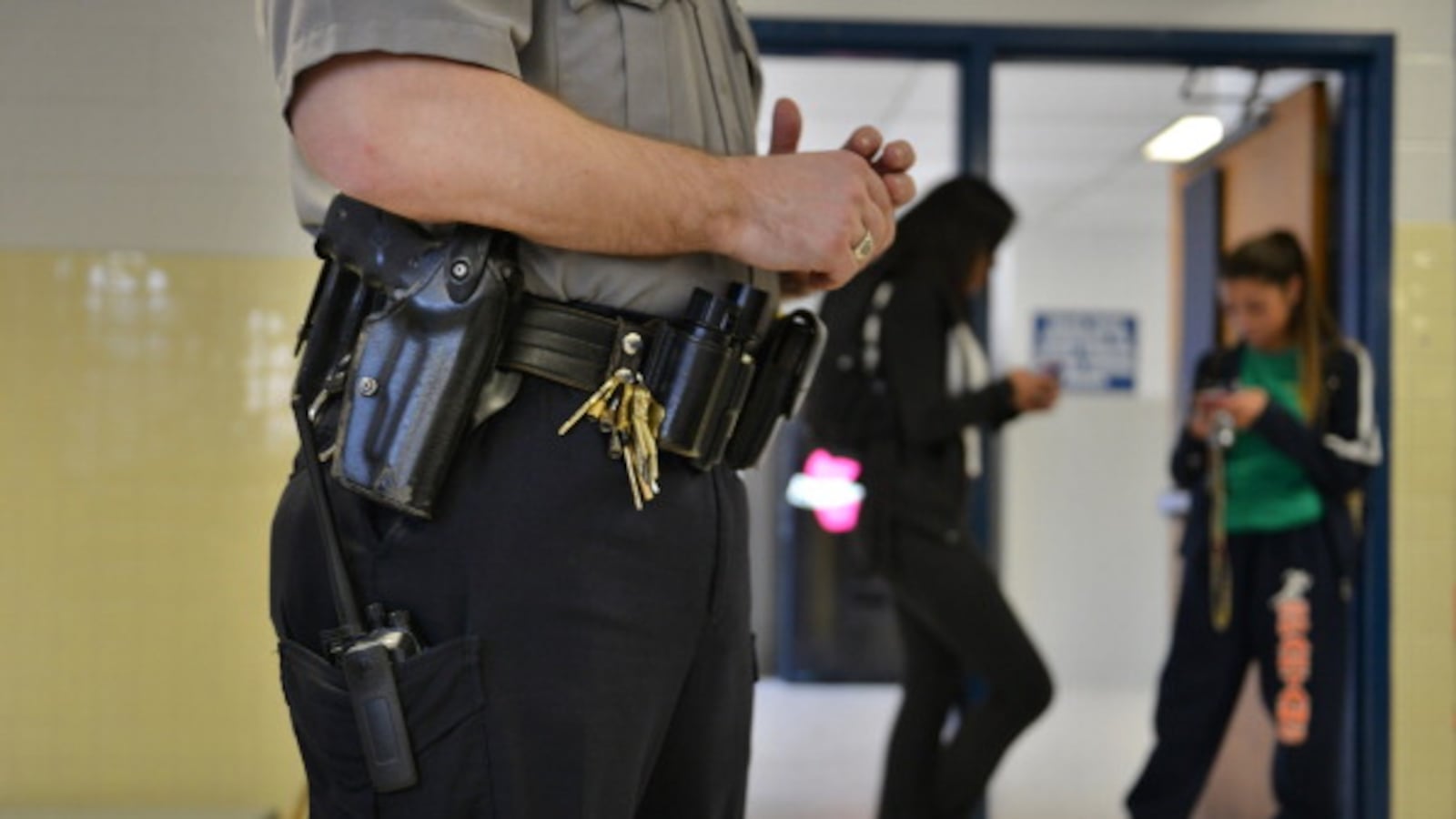Gov. Bill Haslam’s task force on school safety has identified expanded coverage by trained school safety staff — known as school resource officers, or SROs — as an immediate priority for Tennessee.
In response, the Republican governor, who is against a legislative proposal to arm some teachers with handguns, has set aside extra money in his proposed budget for state grants to help vulnerable districts pay for SROs and other security needs.
As Tennessee reviews the safety of its 1,700-plus public schools after this year’s fatal shooting rampage at a Florida high school, here are five things to know about its SRO program:
1. SROs have been around in Tennessee since 1993.
Rutherford County was the first to hire them, when then-Sheriff Truman Jones assigned five officers to keep schools secure and serve as safety resources to students and educators. That was five years before the Columbine massacre, where two students shot and killed 13 people at a Colorado high school and put mass school shootings on the national consciousness. “The [national] trend before then was to put officers in schools to build relationships with students and help with kids who were having problems,” said Terry Ashe, executive director of the Tennessee Sheriffs Association. “We knew school shootings were a probability, though. The research was out there.”
2. Tennessee’s program has grown to 991 SROs, covering more than half of the state’s school buildings.
Most schools without an SRO are elementary schools. “If you’re going to have issues, it’s typically been in high schools,” said Justin Grogan, who patrols Moore County High School and heads the Tennessee School Resource Officer Association. Sixteen of the state’s more than 140 school districts have no SROs. Some metropolitan schools are staffed with security officers, which Grogan said do not have to be sworn law enforcement officers, although they can be.
3. How they are funded is a hodgepodge.
SROs do not fall under Tennessee’s education funding formula. Some are paid for by their local school districts, while others are funded by individual counties via the sheriff’s budget. “It’s really all over the map,” said Ashe. Because law enforcement pay varies widely across the state, there’s no accurate figure on how much it would cost for every Tennessee school to have one, according to Ashe.
4. SROs are sworn law enforcement officers.
They must have at least two years of experience in law enforcement, which means that they’ve graduated from one of Tennessee’s police academies with more than 400 hours of training. In addition, they must complete 40 hours of training to obtain their SRO certification, and another 16 hours annually to keep it. Much of the annual training is conducted by the state SRO association at its annual conference in June. SROs also must undergo annual training in firearms.
5. They answer to their sheriff or police chief, not their principal or superintendent.
Like any law enforcement officer, SROs carry a gun and a badge and have the authority to make arrests. They also must file a report on any crime or arrest with their local law enforcement department, which then sends the information to the Tennessee Bureau of Investigation. “There are a lot of bad situations that SROs have stopped that you never hear about,” said Ashe. “Eighty-five percent of these incidents is somebody coming in from the outside — maybe a parent, maybe a former student. We’re intervening every day. You just don’t read about it in the newspapers.”

